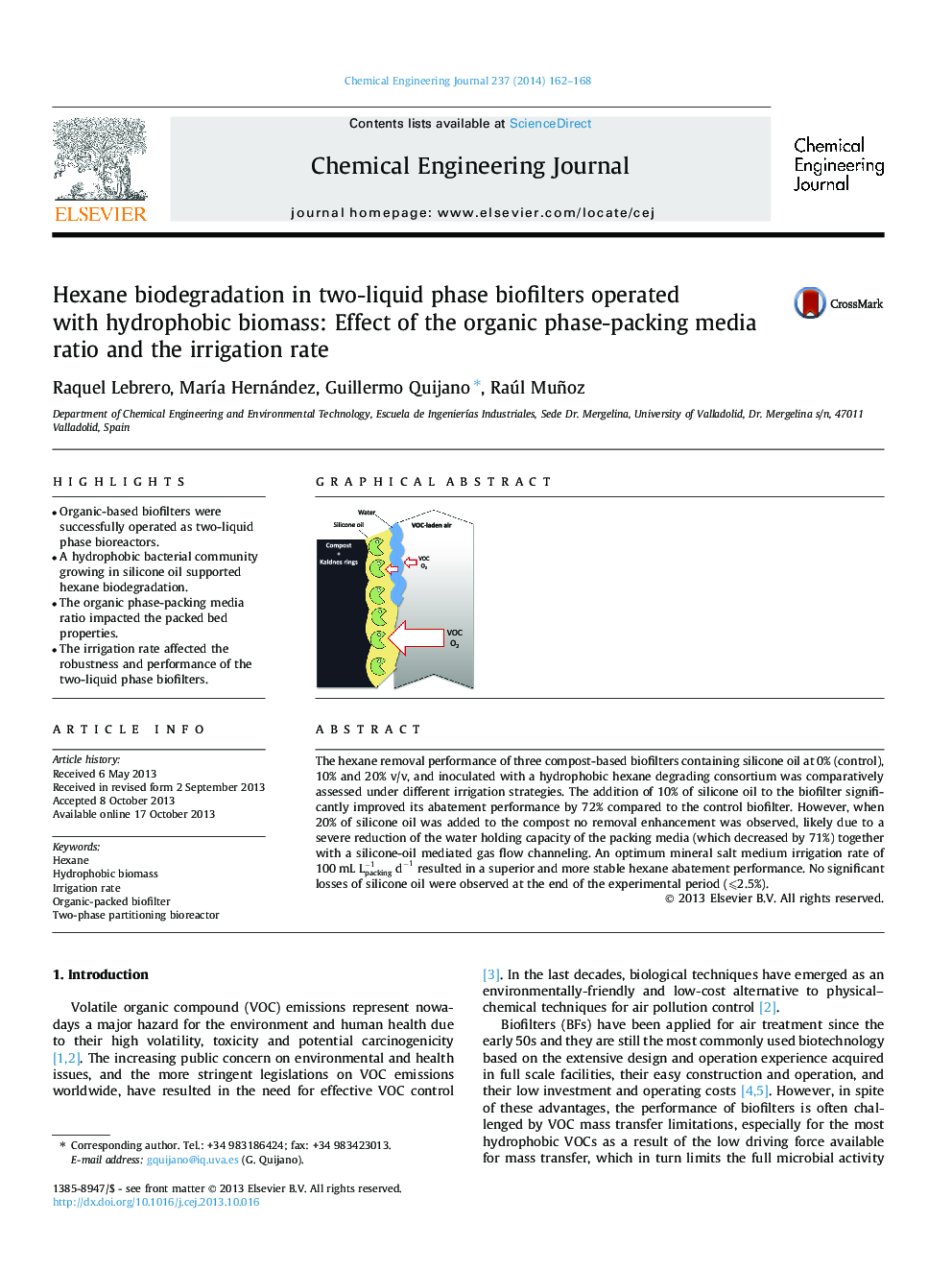| Article ID | Journal | Published Year | Pages | File Type |
|---|---|---|---|---|
| 148199 | Chemical Engineering Journal | 2014 | 7 Pages |
•Organic-based biofilters were successfully operated as two-liquid phase bioreactors.•A hydrophobic bacterial community growing in silicone oil supported hexane biodegradation.•The organic phase-packing media ratio impacted the packed bed properties.•The irrigation rate affected the robustness and performance of the two-liquid phase biofilters.
The hexane removal performance of three compost-based biofilters containing silicone oil at 0% (control), 10% and 20% v/v, and inoculated with a hydrophobic hexane degrading consortium was comparatively assessed under different irrigation strategies. The addition of 10% of silicone oil to the biofilter significantly improved its abatement performance by 72% compared to the control biofilter. However, when 20% of silicone oil was added to the compost no removal enhancement was observed, likely due to a severe reduction of the water holding capacity of the packing media (which decreased by 71%) together with a silicone-oil mediated gas flow channeling. An optimum mineral salt medium irrigation rate of 100mLLpacking-1d-1 resulted in a superior and more stable hexane abatement performance. No significant losses of silicone oil were observed at the end of the experimental period (⩽2.5%).
Graphical abstractFigure optionsDownload full-size imageDownload as PowerPoint slide
